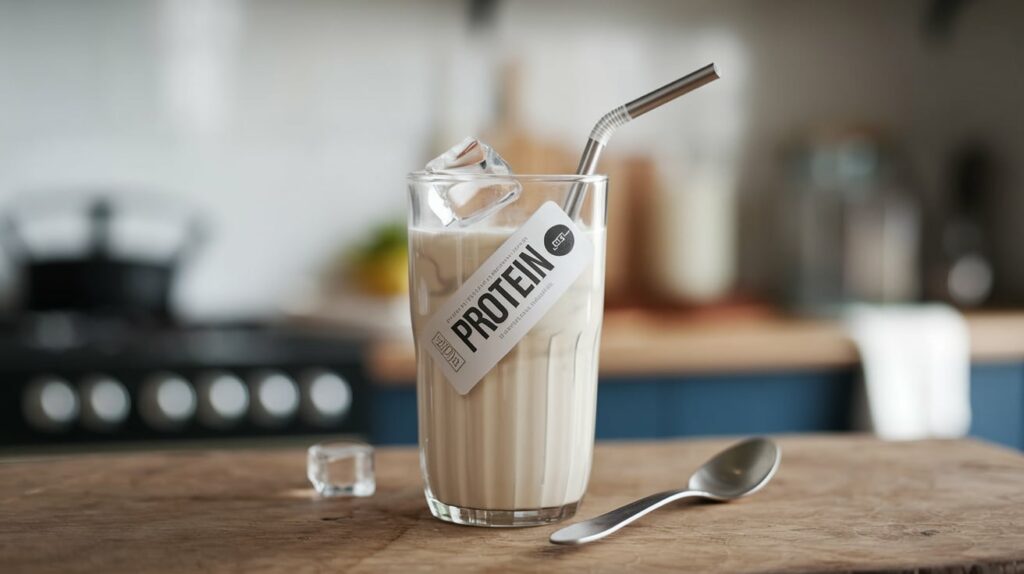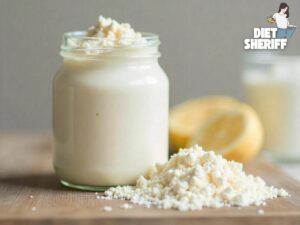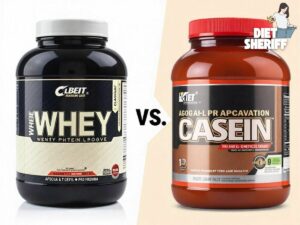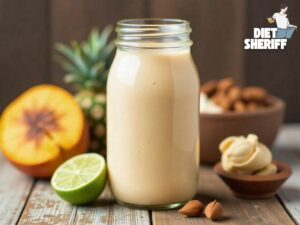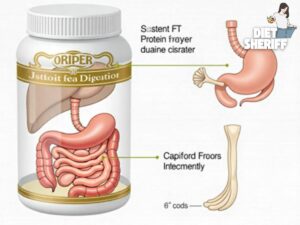Whether you’re trying to bulk up, lose weight, or just maintain a healthy lifestyle, understanding the calorie content in your protein powder is crucial. This might lead you to wonder – does protein powder have calories?
In this comprehensive guide, we’ll dive deep into the calorie facts about protein powder and help you understand how it fits into a healthy, balanced diet.
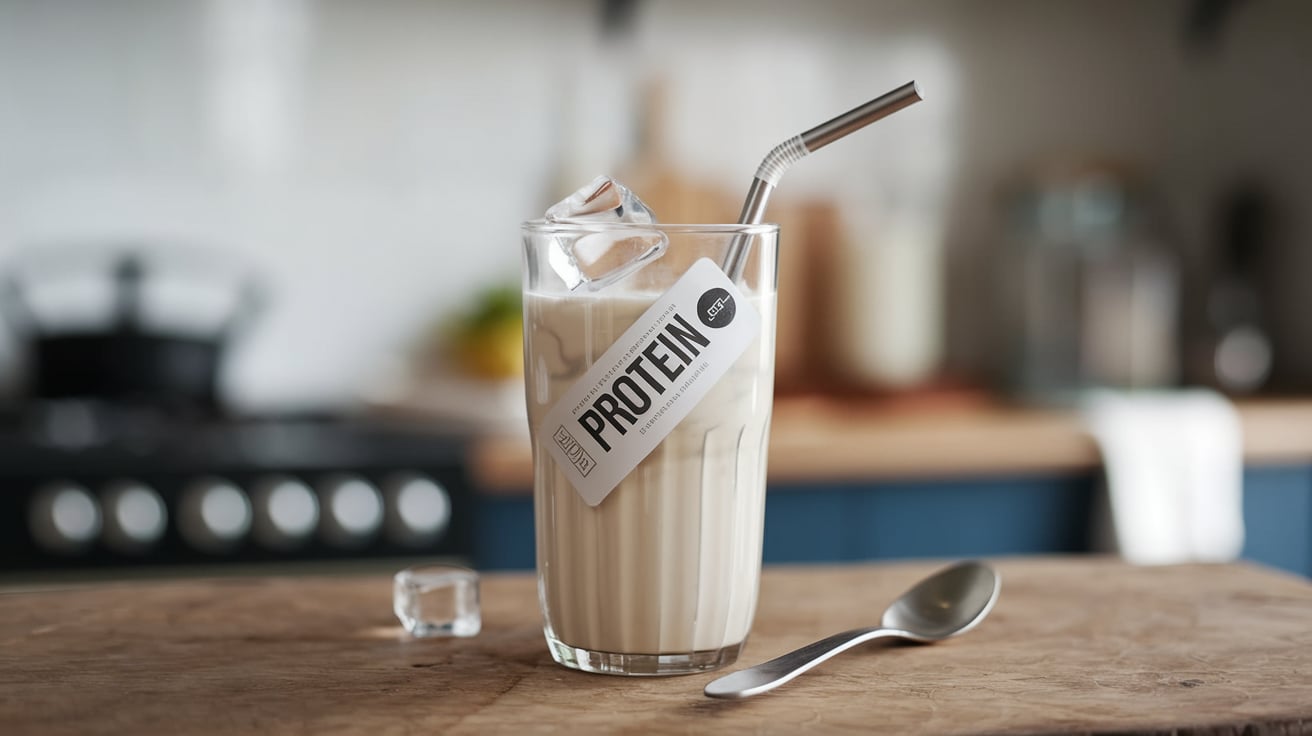
Why Do Calories Matter?
You might be wondering, “Why might someone want to know the calorie count of protein powder?” Well, calories play a crucial role in achieving your fitness goals.
If your goal is to build muscle, you’ll need to consume enough calories to support muscle growth and recovery. Protein powder can be a convenient way to increase your overall protein intake, which is essential for building and repairing muscle tissue.
On the other hand, if you’re trying to lose weight, you’ll need to create a calorie deficit by burning more calories than you consume. In this case, it’s important to be mindful of the calories in your protein powder and adjust your overall calorie intake accordingly.
Related Article: Can Protein Powder Cause a Headaches?
https://gigasecurehome.com/how-to-tell-if-your-wyze-camera-has-been-hacked
What Is the Calorie Content of Protein Powder?
So, does protein powder have calories? The short answer is yes, protein powder does contain calories.
However, the number of calories can vary greatly depending on the specific product and the type of protein used. On average, a standard serving of protein powder (around 25-30 grams) can contain anywhere from 100 to 150 calories.
Whey Protein Powder
Whey protein is one of the most popular and widely-used protein powders. It is a byproduct of the cheese-making process and is known for its high-quality, fast-absorbing protein profile. A typical serving of whey protein powder can contain around 120-130 calories.
Casein Protein Powder
Casein protein is another common type of protein powder. It is derived from milk and is known for its slower absorption rate, making it ideal for providing a sustained release of amino acids. A serving of casein protein powder can range from 110 to 140 calories.
Related Article: Difference Between Protein Powder & Pre-Workout Supplements
Plant-Based Protein Powders
For those seeking a non-dairy option, there are a variety of plant-based protein powders available, such as pea, hemp, or soy. These tend to have a slightly lower calorie count, typically ranging from 90 to 120 calories per serving.
It’s important to note that the calorie content can also vary depending on the specific brand, additional ingredients, and the serving size. Always be sure to check the nutrition label of your chosen protein powder to understand the exact calorie breakdown.
https://gigasecurehome.com/wyze-cam-v3-not-scanning-qr-code
Why Do Protein Powders Contain Calories?
Protein powders contain calories due to the natural energy content of their protein sources. Milk-based protein powders, such as whey and casein, contain lactose and fat. Whey protein, for instance, is derived from the liquid part of milk that separates during cheese production, which contains lactose.
Plant-based protein powders, on the other hand, are made from various plant sources, such as peas, hemp seeds, and brown rice. These plants contain carbohydrates, fiber, and other nutrients that contribute to the caloric content of the protein powder.
Additionally, some protein powders may contain additives like sweeteners, flavorings, or thickeners, which can increase the caloric content. Manufacturers may also add fillers like maltodextrin or cellulose to increase the volume of the powder, which can also contribute to the calorie count.
https://gigasecurehome.com/wyze-base-station-yellow-light
Factors That Affect Protein Powder Calories
Now that we’ve established that protein powder does indeed contain calories, let’s dive into the factors that can influence the calorie content.
Related Article: Are Protein Drinks Fattening?
- Protein Source: The type of protein used in the powder can significantly impact the calorie count. Whey and casein protein powders tend to be higher in calories than plant-based options, primarily due to their higher protein content.
- Added Ingredients: Many protein powder manufacturers include additional ingredients, such as carbohydrates, fats, or even fiber. These added ingredients can contribute to the overall calorie count, so it’s important to read the label carefully.
- Serving Size: The serving size recommendation on the protein powder container is an essential factor in determining the calorie content. Be mindful of the serving size and adjust your intake accordingly to meet your specific caloric needs.
- Individual Metabolism: It’s important to remember that the way our bodies metabolize and utilize the calories from protein powder can vary from person to person. Factors such as age, activity level, and overall health can all play a role in how our bodies process the calories from protein powder.
Choosing the Right Protein Powder
With so many protein powder options available on the market, it can be overwhelming to choose the right one. Here are some tips to help you make an informed decision:
Consider Your Dietary Needs and Preferences
Assess your dietary restrictions, allergies, and personal preferences when selecting a protein powder. If you’re lactose-intolerant, opt for a plant-based or lactose-free option. If you’re following a specific dietary plan, choose a powder that aligns with your macronutrient goals.
Read the Nutrition Label
As mentioned earlier, always take the time to read the nutrition label of your chosen protein powder. This will help you understand the calorie, protein, and other macronutrient content, as well as any additional ingredients that may be present.
Consider Third-Party Testing and Certifications
Look for protein powders that have been tested and certified by third-party organizations, such as NSF or Informed Sport. These certifications can provide an extra level of assurance regarding the quality and purity of the product.
How to Incorporate Protein Powder into Your Diet?
Now that we’ve established that protein powder does have calories, let’s explore how you can incorporate it into your diet in a way that aligns with your fitness goals.
Related Article: Are Premier Protein Shakes Keto Friendly?
For Weight Loss
If you’re aiming to lose weight, you can use protein powder to help you feel full and satisfied, which can aid in reducing overall calorie intake. Mix a serving of protein powder with water, milk, or a plant-based milk alternative to create a low-calorie, high-protein shake or smoothie diet sheriff.
For Muscle Building
If your goal is to build muscle, you can use protein powder to help meet your increased protein requirements. Consume a serving of protein powder mixed with water, milk, or a plant-based milk alternative before or after your workouts to support muscle recovery and growth.
For Snacking
Protein powder can also be a convenient and nutritious option for healthy snacking. Mix a serving of protein powder with Greek yogurt, oats, or even use it as a topping for fruit or baked goods.
Now come to the final verdict! Does protein powder have calories? Yes, protein powder does have calories, and the exact amount can vary depending on the type and specific formulation.
With this comprehensive guide, you’re now equipped with the knowledge to make informed decisions about your protein powder intake and take your fitness journey to new heights.
Explore Also:
Creativehouseblog
Gigasecurehome
Mycleanseplan
Does Protein Powder Have Calories – FAQs
Does all protein powder have calories?
Yes, all protein powders contain calories. The number of calories can vary depending on the type of protein, added ingredients, and serving size.
Is protein powder high in calories?
Protein powder is not inherently high in calories, but the calorie content can add up quickly if consumed in excess. Moderation is key when incorporating protein powder into your diet.
How can I reduce the calorie content of my protein shake?
To reduce the calorie content of your protein shake, use low-calorie liquid bases like water, unsweetened almond milk, or low-fat dairy milk, and avoid adding high-calorie ingredients like peanut butter or ice cream.
Can protein powder help with weight loss?
Protein powder can be a useful tool for weight management when consumed in moderation and as part of a balanced, calorie-controlled diet. The protein content can help promote feelings of fullness and support muscle maintenance during weight loss.

